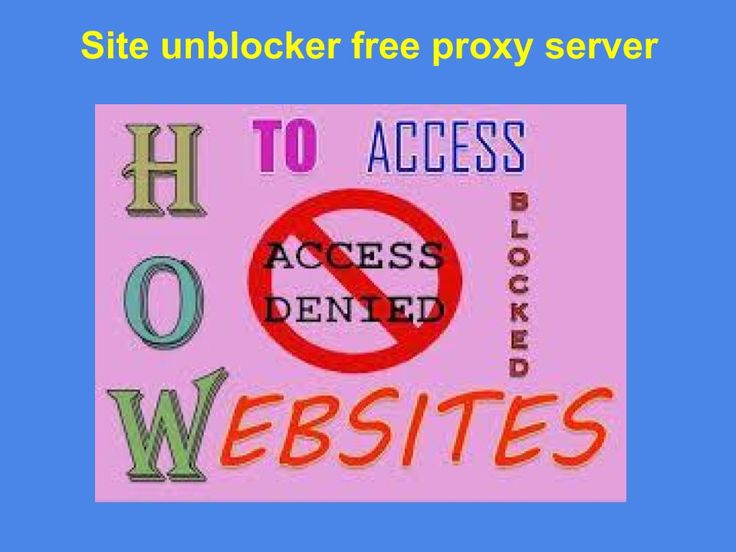In today's digital age, the internet has become an essential resource for students, enabling them to access a wealth of information at their fingertips. However, many schools implement strict internet filters and restrictions that can hinder students from accessing valuable educational content. This is where a website unblocker for school comes into play, providing a solution to bypass these limitations and enhance the learning experience. Understanding how these tools work, their advantages, and how to use them responsibly is crucial for students who want to make the most of their online education.
While the intention behind internet restrictions in schools is often to protect students and maintain focus, it can lead to frustration when legitimate educational resources are blocked. A website unblocker for school can help students regain access to these resources, allowing them to expand their knowledge and skills. However, it's essential to use these tools ethically and understand the potential repercussions of bypassing school policies. This article explores the various types of website unblockers, their effectiveness, and best practices for using them in an educational setting.
As we delve deeper into the world of website unblockers, we will also discuss the implications of using these tools, including the importance of digital citizenship and the need for responsible internet usage. By striking a balance between accessing necessary resources and adhering to school guidelines, students can foster a productive online learning environment. So, let’s uncover the truths and myths surrounding website unblockers for school, and empower students to make informed choices about their internet usage.
What is a Website Unblocker for School?
A website unblocker for school is a tool or service designed to bypass internet filters imposed by educational institutions. These tools can take various forms, including:
- Proxy websites
- VPNs (Virtual Private Networks)
- Browser extensions
- Tor browser
Each of these methods has its own strengths and weaknesses, and understanding them is crucial for students seeking to navigate their school’s restrictions effectively.
How Do Website Unblockers Work?
Website unblockers operate by masking a user's original IP address or routing their internet traffic through a different server. This allows users to access blocked websites as if they were in a different location. Here’s a brief overview of how some common unblockers function:
- Proxy Websites: These act as intermediaries, allowing users to access blocked content by redirecting their requests through the proxy server.
- VPNs: VPNs encrypt your internet connection and route it through a server in a location of your choice, effectively hiding your online activity from school filters.
- Browser Extensions: Some extensions can automatically reroute traffic or help you connect to a proxy server.
- Tor Browser: Tor uses a network of servers to anonymize your internet traffic, making it difficult for schools to block specific sites.
Are Website Unblockers Safe to Use in School?
While website unblockers can provide access to restricted content, safety should always be a priority. Here are some considerations to keep in mind:
- Privacy: Choose reliable unblockers that ensure your data is secure.
- Malware Risks: Some free unblockers may expose you to harmful software.
- School Policies: Understand the consequences of bypassing restrictions set by your institution.
What Are the Benefits of Using a Website Unblocker for School?
Utilizing a website unblocker for school can yield several benefits for students, including:
- Access to Educational Resources: Students can explore a broader range of materials that enhance their understanding of subjects.
- Research Opportunities: Unblockers can facilitate access to academic journals, articles, and databases that may otherwise be restricted.
- Enhanced Learning: By accessing diverse content, students can develop critical thinking skills and broaden their perspectives.
What Are the Risks of Using a Website Unblocker for School?
Despite the potential benefits, using a website unblocker for school carries certain risks:
- Consequences of Violation: Students may face disciplinary actions if caught using unblockers against school policy.
- Potential Security Threats: Some unblockers may expose users to phishing sites or malware.
- Loss of Trust: Bypassing restrictions can damage the trust between students and educators.
How to Choose the Right Website Unblocker for School?
Selecting the right website unblocker requires careful consideration. Here are some tips to help you make an informed choice:
- Reputation: Research the unblocker's credibility and user reviews.
- Privacy Features: Look for options that prioritize user privacy and data encryption.
- Ease of Use: Choose a tool that is user-friendly and easy to set up.
- Cost: Consider whether a free service meets your needs or if a paid option is necessary for enhanced security.
Can Students Use Website Unblockers Responsibly?
Yes, students can use website unblockers responsibly by adhering to ethical guidelines. Here are some ways to ensure responsible usage:
- Understand School Policies: Familiarize yourself with your school’s internet usage policies before accessing blocked content.
- Prioritize Educational Content: Focus on accessing resources that are educational and beneficial to your learning.
- Discuss with Educators: If you believe certain resources should be accessible, consider discussing this with your teachers or administrators.
Conclusion: The Future of Website Unblockers in Education
As technology continues to evolve, so too will the tools available for students to navigate the internet. A website unblocker for school can empower students to access valuable educational resources while also presenting challenges that must be navigated responsibly. By understanding the benefits and risks associated with these tools, students can make informed decisions and contribute positively to their learning environment. Ultimately, the goal should be to use the internet as a means of enhancing education while adhering to the principles of digital citizenship and responsibility.
You Might Also Like
Alyssa McBride: Unveiling The Mystery Behind The FameUnveiling The Life Of Matt Berry's Wife: A Journey Of Love And Partnership
Sydney Sweeney: The Hot And Sexy Star Captivating Hearts
Exploring The Impact Of Lil Tay: A Unique Tribute
The Ultimate Guide To Unblockers: Breaking Boundaries Online
Article Recommendations


